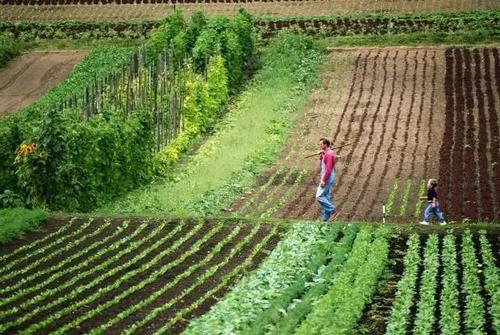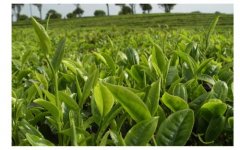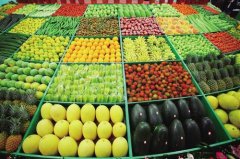Organic Agriculture Certification: is non-third Party Organic Product Certification feasible? Development Prospect of Organic Agriculture
In China, there has always been no non-third-party organic verification of organic agriculture, while South Korea has, then non-third-party organic verification of organic agriculture is feasible? Deconstructing the success of Hansalim cooperatives in Korea. Let's take a look.
In South Korea, there are ways to encourage farmers to engage in organic agriculture, including PGS (participatory Security system) and Hansalim Hansarin Cooperative (hereinafter referred to as Hansalim). Among them, I have known the cooperative farmers of Hansalim for many years, they are very honest, the farming method is very organic, sometimes more organic than the organic verified by the third party. Some Hansalim agricultural products are not organically certified, but South Korean consumers equate Hansalim with organically certified agricultural products. In fact, the food regulations of Hansalim are the most stringent in South Korea. Cooperatives only buy products with moral and honest farmers, and every farmer who joins the cooperative has to be evaluated by the cooperative.

Some female members are very smart, such as housewives. Farmers often say that housewives are the most terrible human beings. when these housewives find something wrong, they will take the initiative to inform these farmers, for example, when farmers only attach importance to production. On the contrary, housewives will tell them that they should also consider aspects such as the ecological environment. Since the relationship between farmers and housewives does not involve third-party verification, they call this "self-verification" to ensure that food is safe, but it is not officially listed as a certified organic product in South Korea.
In the past, we only focused on verification and wanted to establish a farmer-friendly verification method, and this is the problem of organic agriculture 2.0. We found that if there were too many restrictions, small farmers would be excluded, resulting in many farmers' agricultural products being unable to become organic products because of verification restrictions, but around the world, the proportion of small farmers was as high as 70%. Small farmers are very important and we want to include them.
Whether it is organic verification or PGS, it is one of the verification tools, focusing on the mentality of governments and people in various countries, and how to use these tools to develop organic agriculture is the key. Compared with organic verification, PGS can not only support the growth of organic farmers, but also support the growth of organic farmers. Therefore, if we want to establish a PGS system, not only consumers but also farmers should participate in order to make the development of organic agriculture broader.
- Prev

Organic tea: how about organic tea? The famous organic tea industry will return to the road of glory.
Organic tea sales have been plummeting due to pesticide residues a year ago. Recently, organic red jade has been blessed by the plant medical team, and the famous tea industry has returned to the road of glory. Is this true? Let's take a look. Mingjian Township, mostly a small-scale peasant system, has always been proud of tea, but broke out a few years ago.
- Next

The certificate format of agricultural product inspector is revised. What are the provisions for agricultural product identification?
Let's take a look at the buffer period for the labeling of the products involved after the revision of the certification format of organic agricultural products in Taiwan. 1. On August 24, 107, the Committee on Agriculture of the Executive Yuan amended the specifications of organic agricultural products stipulated in Article 3 of the measures for the Administration of Agricultural products.
Related
- A one-day flower show brings 130 million yuan in orders! Nanhai, this Phalaenopsis exhibition is amazing
- What do the flower language and meaning of Lutheran tree mean? Precautions for planting Lutheran tree
- Encounter Chaoshan Kongfu tea, not without this cup of Phoenix single clump
- The durian market in Vietnam and Thailand is flooded. The price of imported durian has plummeted by 30-40% in a month.
- Shanghai solved the problem of local vegetable supply by planting 80,000 mu of green leafy vegetables.
- Wageningen University has become the best agricultural university in the world for the seventh time in a row.
- The strongest export season of South African grapes is full of challenges, with exports to Russia falling sharply by 21%.
- Sri Lanka is on the verge of bankruptcy, "Tea for debt" Organic Agriculture Revolution aggravates the Food crisis?
- Turning waste into earthworm manure and worm manure into organic fertilizer-A new choice for auxiliary farming
- Organic rice growers shoulder the responsibility of nurturing agricultural talents! Yinchuan Sustainable Farm with Organic Life Camp

